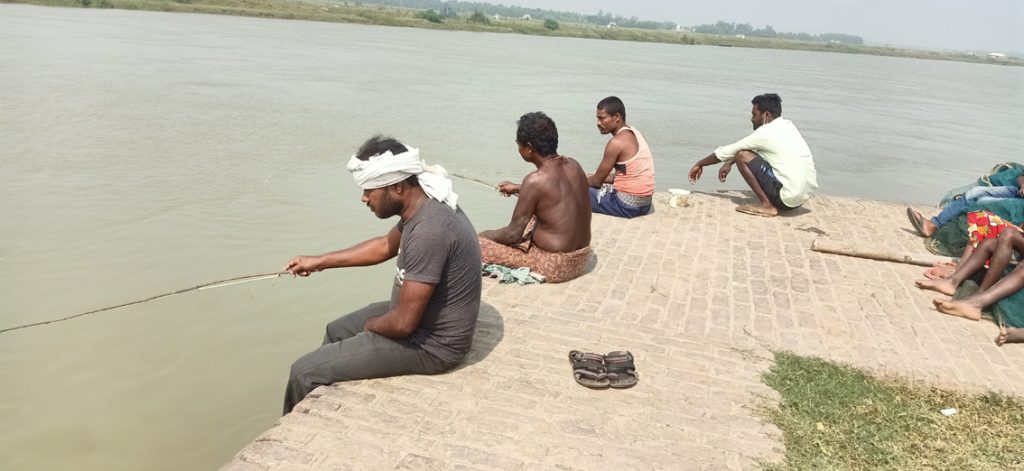Balasore: Charigochhia estuary formed by the Budhabalang River which meets Bay of Bengal has been a source of livelihood for hundreds of families of Srikona panchayat under Sadar block in Balasore district.
For them catching fish here is the only means to keep the pot boiling back at home.
Before meeting Bay of Bengal, the Budhabalng River makes a U-turn at Charigochhia and forms an estuary, proving to be a boon for nearby people.
One can find people sitting in a line with their fishing rods along the estuary from early in the morning till the evening. Besides Charigichhia village, people from Old Balasore, Motiganj, Nuasahi Pola and Nakhpur villages also depend on this estuary to earn their livelihoods.
According to some fishermen, the estuary is very deep due to the river’s U-turn. “The estuary has been a favorite for bigger fishes in the river. The mouth being a deep one, catching fish using nets is not possible here. So all of us catch fish using fishing rods,” they observed.
They said they catch varieties of fishes at different times of the year. A family earns from selling the catch something between Rs 5,000 to 6,000 in a month.
“At times we catch ‘Begti’ or ‘Balia’ fishes weighing 10 to 12 kilograms. We use special kind of fishing rods for these bigger size fishes. The rods used for catching shrimp are normally short and thin whereas the rods used for catching bigger fish are comparatively bigger and stronger,” they added.
According to Sudhanshu Patra, a villager, Charigochhia village is inhabited by about hundred families with a population of over 500. Catching fish has been a prime source of earning livelihood for most of the villagers. The estuary is known for Shrimp and Begti. While the fishermen sell the female shrimps to the local prawn farmers at Rs 400 to 500 each, they take their rest of the shrimp catch to the fish market at Motignaj where they sell them for between Rs 600 and 700 a kilogram.
Echoing the same, Gopal Chandra Patra, another villager, said he has an eight-member family and whatever he gets from fishing and farming is enough to meet the family expenses. “I have never experienced any problems in running my family,” he added.
PNN

